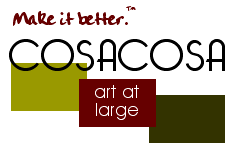



The origin of poetry like those of painting, sculpture, music and theater lies shrouded in the sacred and the divine. In fact the spoken word, to which poetry is intrinsically related is the basis for the creation of the world in Genesis, and is reflected in many creation myths throughout the world. Poetry unlike prose, relies on the economy and musicality of language to convey sometimes in a few lines, profound and beautiful concepts, ideas and emotions that stay with us long after we’ve read them.
Poetry, is also that most democratic of art forms. Unlike other art forms that require both training and discipline, poetry is something everyone writes at one point or another. I am not suggesting that poetry does not require training and discipline, since any accomplished poet must master the craft, but rather, that it is something people come to quite easily. Perhaps it is the fact that some of the first things we learn and commit to memory are songs and nursery rhymes. These childhood encounters with the written word are easily committed to memory because they employ elements central to the writing of poetry; rhyme, assonance, alliteration, and onomatopoeia (words that imitate the sounds they describe: buzz, snap, snore, clash, murmur).
The democratic nature of poetry is also evident in its ability to heal, and it is to poetry that people turn to in times of personal tragedy or joy, as witnessed by the number of poetic responses to the attacks on the World Trade Center. Poetry in its immediacy, its power, its economy of language served as a tool to make sense out of the senseless, and in it, a nation found comfort, solace and healing.
That poetry is enjoying a renaissance of sorts bodes well for both poets and their craft. The fortune of poetry and poets has waxed and waned across the centuries. What remains infallible however, is its power to convey the deepest feelings and emotions of the human heart, and the concerns of the human experience. Poets and poetry remain important beacons of light as we sail an uncertain world. That it is being written, published and read, in such quantities is reassuring. We find comfort in the familiar, the childhood lullaby, the nursery rhyme, the lyrics of songs. Poetry is at the center of all these, and in that I find great comfort. I hope you do as well.
Juan David Acosta’s work as a poet, writer, activist, and cultural worker has appeared in many literary journals and anthologies. Among the most notable are Mayrea, The Evergreen Chronicles, The Americas Review, American Poetry Confronts the 1990s (Black Tie Press 1990). The Limits of Silence (Asterion Press 1991), Poesida (Ollantay Press, 1995), and Floating Borderlands: Twenty Five Years of Latin American Poetry in The United States (University of Washington Press, 1998). Acosta is the co-founder of the Working Fund for Artists with AIDS, and has taught poetry and creative writing across the curriculum in schools throughout Philadelphia.
Artolatry bread image after Salvadore Dalí's Basket of Bread (1926).